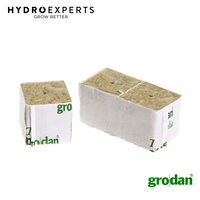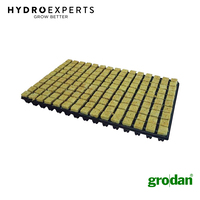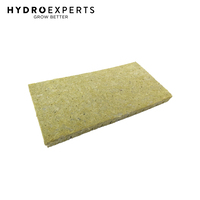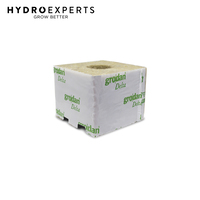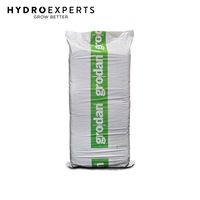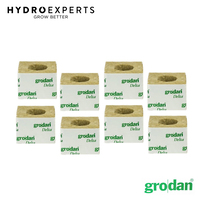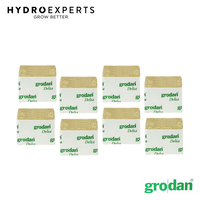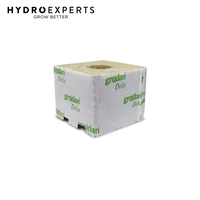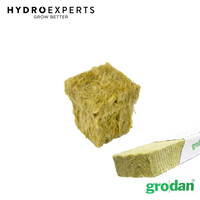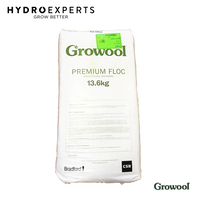Whether you need rockwool for hydroponic systems, cloning seedlings or growing rare plants, Hydro Experts has the rockwool cubes, blocks and slabs you need. Rockwool is a popular hydroponic medium made from molten rock and recycled slag that is spun into fibres and formed into growing blocks, slabs and cubes. These rockwool growing mediums allow for excellent drainage, aeration and water retention for your plants' roots while growing in nutrient solutions.
For flood and drain hydroponic systems, rockwool cubes are perfect for starting seeds and clones. The small cubes hold just enough nutrient solution for seedlings and cuttings while providing the aeration and drainage they require. Once rooted, you can transfer the seedlings to larger rockwool blocks. Rockwool blocks and slabs are excellent for growing plants to maturity in deep water culture, ebb and flow and NFT systems. The larger sizes accommodate the expanding root systems of mature plants. The granulated rockwool growing bags are ideal for vertical and deep water culture systems where the roots hang down into the nutrient solution.
Whichever rockwool product you need - cubes, blocks, slabs or bags - Hydro Experts has the high-quality rockwool grow mediums you've trusted for cloning, seedling starts and hydroponic plant growth. Shop our selection of rockwool products today and let the pros help you find the perfect rockwool for your next hydroponic grow.
2 Related Content Found
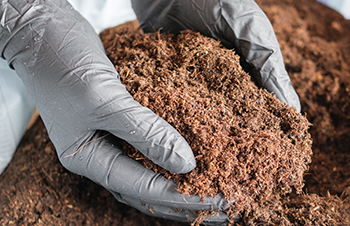
How to Use Soil Amendments-Sphagnum Peat Moss

Mycorrhizal Fungi in Hydroponics - Questions and Answers
Q: What Are the Uses of Rockwool Cubes?
A: Rockwool cubes serve several essential purposes in hydroponic and horticultural systems due to their unique properties:
-
Germinating Seeds: Rockwool cubes are commonly used for germinating seeds. They excel at maintaining the right moisture levels for seed germination. The cubes keep seeds from drying out while preventing them from sitting in waterlogged conditions. Adequate moisture is crucial for activating enzymatic reactions within seeds that initiate germination.
-
Cloning New Plants: Rockwool cubes are ideal for propagating new plants through cuttings. This process involves taking a part of an existing plant (often a stem or leaf cutting) and growing it into a new plant with identical genetics. Maintaining high humidity around the cutting is vital for successful propagation. Rockwool cubes help prevent cuttings from drying out and create a sterile environment free from harmful microorganisms that can hinder propagation.
-
Hydroponic Growing: Rockwool cubes are used as a growing medium in hydroponic systems. They provide stability to plants and excellent moisture retention capabilities. These cubes also offer a substantial oxygen buffer, ensuring an oxygen-rich root zone. This helps prevent overwatering and root suffocation while promoting healthy plant growth.
-
Starting Seeds: Rockwool cubes, especially the 1.5" cubes, are favored for starting seeds. Their ability to maintain proper moisture levels makes them an excellent choice for seedlings. They prevent seeds from drying out while avoiding waterlogged conditions.
Q: Why Prepare Rockwool?
A: Preparing rockwool cubes, blocks, and slabs before use is essential to optimize their performance as a growing medium. Failure to prepare rockwool can lead to unstable pH levels, nutrient deficiencies, and nutrient lockout issues in hydroponic systems. Additionally, unprepared rockwool may not drain properly during irrigation, causing waterlogging and root problems. Proper preparation ensures stable pH and efficient drainage.
Q: How to Dispose of Rockwool?
A: Disposing of rockwool properly is essential to minimize environmental impact. Sending intact rockwool to landfills is not advisable because it is an inorganic material that does not decompose, contributing to long-term waste. Instead, consider shredding rockwool before disposal. Shredded rockwool can be incorporated into potting soil or compost, providing an oxygen boost to plant roots. When handling or shredding rockwool, wear protective gear such as gloves, a facemask, and goggles, as some rockwool strands can be hazardous.

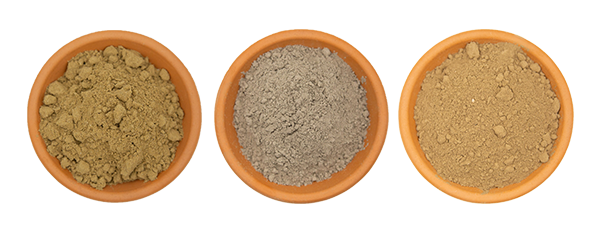




![[BOX of 30 Slab] Grodan Rockwool Grow AO36/40 Cubes - 98 Cube per Slab | 2940 Cubes](/assets/thumb/BOXSUBS30702.jpg?20210309070400)
